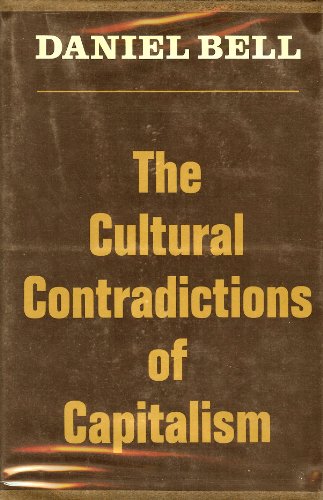 The Cultural Contradictions of Capitalism by Daniel Bell, 282 pages
The Cultural Contradictions of Capitalism by Daniel Bell, 282 pages
According to author Bell, capitalism and liberal democracy incorporate many contradictions, as does any political, social, and economic system devised by human beings. The central contradiction lies in the promotion of radical individualism and the simultaneous development of large-scale systems of organization and control. For centuries this tension between bourgeois and citizen was balanced by a traditional morality enforced through social shaming. This shaky equilibrium was shattered in the 1960s with the embrace of nihilistic hedonism and consumerism. The underlying dysfunction was mirrored in the reign of Modernism in the arts, and the rupture in the emergence of post-modernism.
Bell believed that to resolve, or at least ameliorate, the contradictions of capitalism, a new understanding of justice would have to evolve to reinvigorate the concept of the common good. He rejects conservative attempts to empower intermediate institutions as only feeding the centripetal forces of identity politics. Likewise, any consensus built on exclusive truth claims must inevitably be illiberal and repressive. The best hope that Bell can offer is the development of Rawlsian ethics, although he makes clear the difficulties of that approach as well.
No comments:
Post a Comment